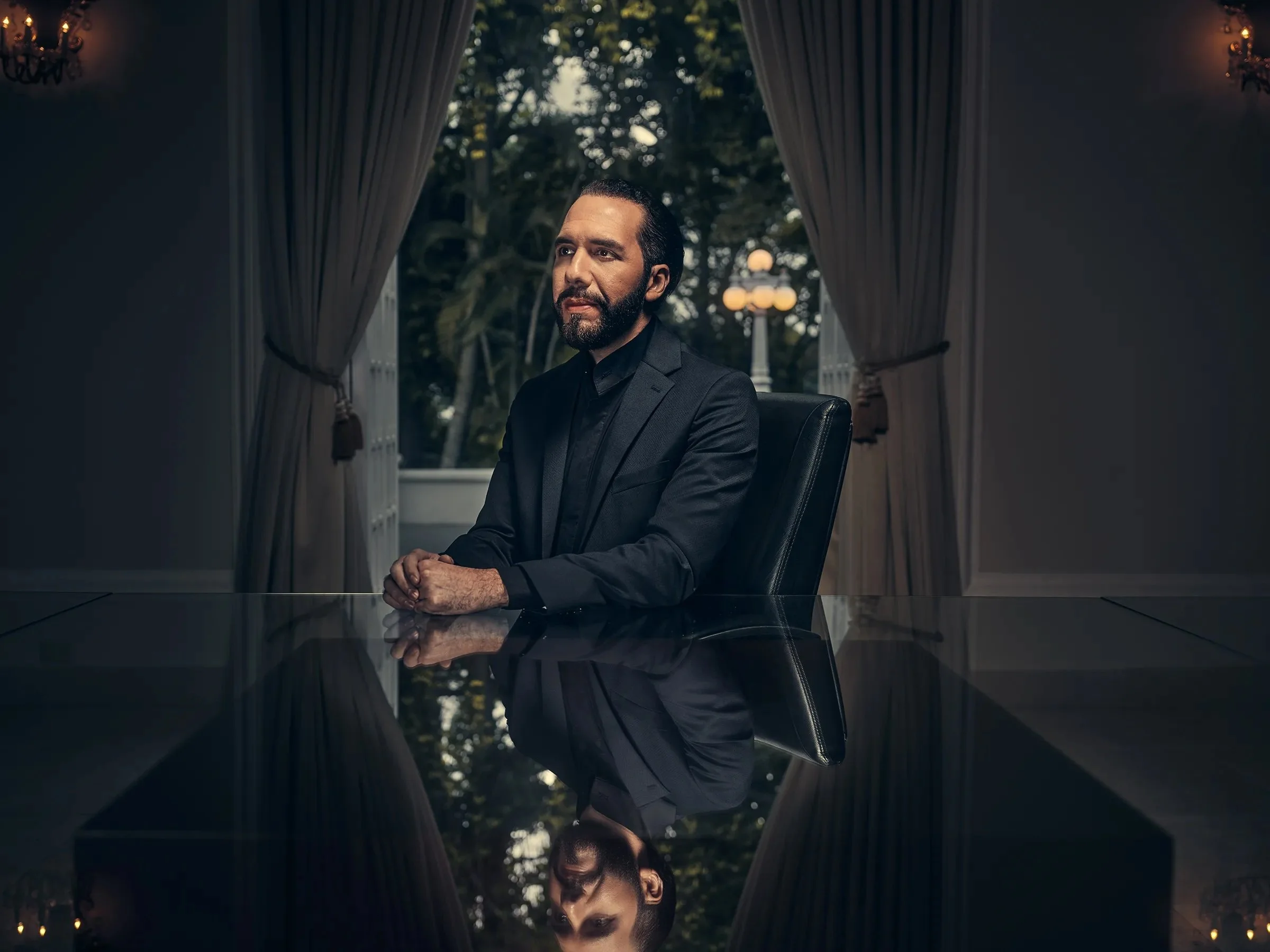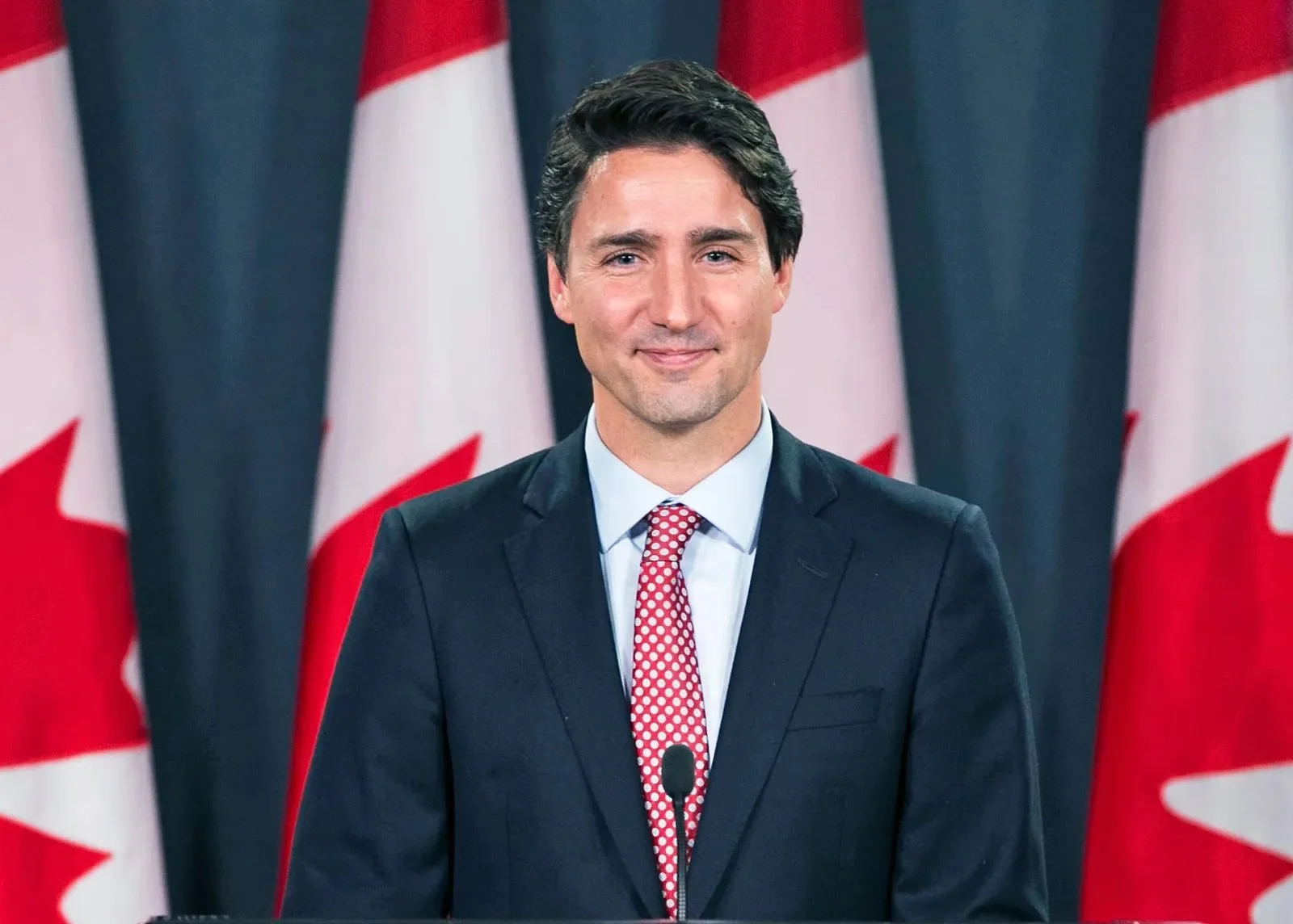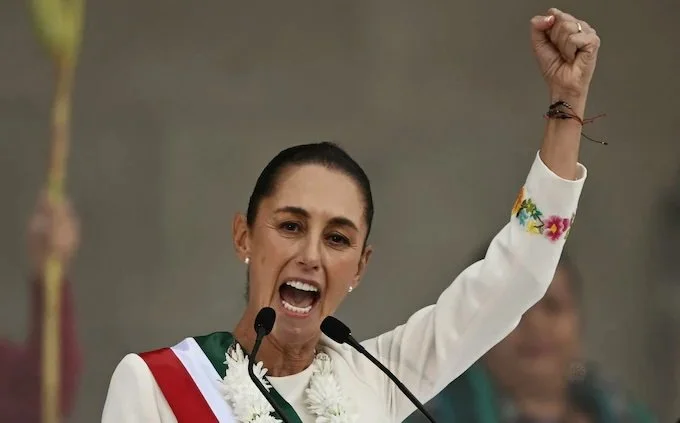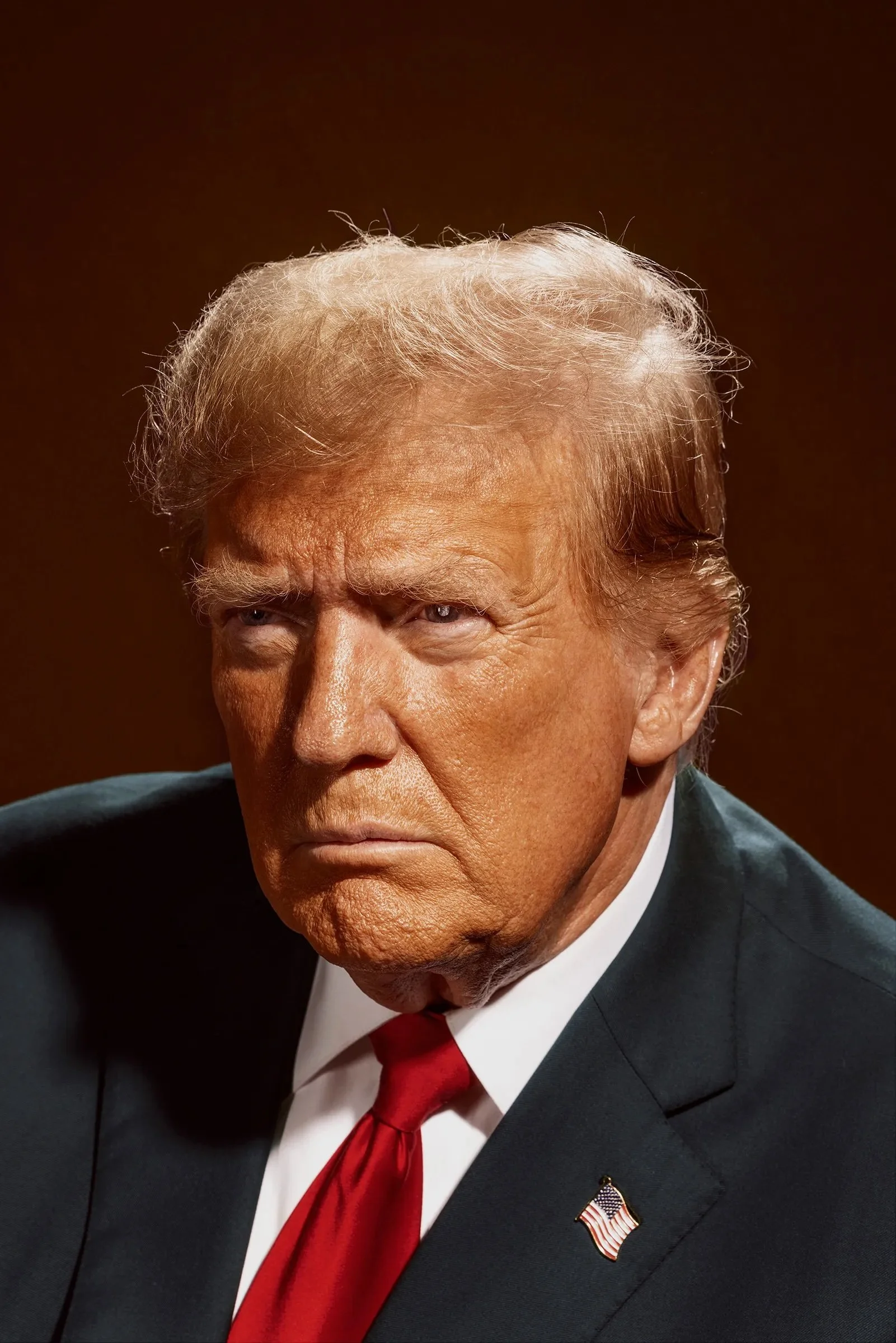GLOBAL TOP FIVE
Author: Tyler Letren | Dec 26, 2024
Benjamin Netanyahu (Israel)
In 2024, Israeli Prime Minister Benjamin Netanyahu faced significant challenges following the October 7th attacks by Hamas and other jihadist groups. His administration's response involved precision airstrikes, ground operations, and intelligence-led strategies aimed at countering escalating threats, which highlighted his commitment to Israeli sovereignty amidst complex geopolitical dynamics and intense international scrutiny
The October 7th attacks, marked by extreme violence resulting in over 1,200 deaths, primarily among Israeli civilians, was one of the deadliest days in Israel's history. Hamas employed tactics such as using tunnels beneath civilian infrastructure—schools, hospitals, and places of worship; which complicated Israel's military operations and drew both operational and ethical criticism. These tactics elevated debates on proportionality in conflict zones, exacerbating humanitarian concerns.
On November 21, 2024, the International Criminal Court (ICC) issued arrest warrants for Netanyahu and former Defense Minister Yoav Gallant, alleging war crimes and crimes against humanity. Human rights lawyer Amal Clooney emphasized the importance of accountability in international law, while the warrants highlighted broader divisions among global leaders. Supporters of Israel argued that these actions ignored Hamas’s violations of humanitarian norms.
Global reactions to Netanyahu’s policies were deeply polarized. Protests worldwide, in many cases, reflected narratives critical of Israel’s actions, often omitting the strategic exploitation of civilian areas by Hamas. While nations such as the U.S. and some European allies supported Israel’s countermeasures, others criticized the humanitarian toll and called for impartial investigations. UN Secretary-General António Guterres stressed the need for balanced accountability.
Netanyahu’s leadership in 2024 reshaped global discussions on counter-terrorism, sovereignty, and ethical warfare. Despite controversy, his unwavering strategies reinforced Israel’s defensive posture and solidified his influence on both regional and global stages.
Nayib Armando Bukele (El Salvador 🇸🇻)
President Bukele at the Casa Presidencial in San Salvador on June 25. Photo Credit: Christopher Gregory-Rivera for TIME
Nayib Armando Bukele, President of El Salvador, emerged as a defining global figure in 2024, navigating a complex balance between innovation and controversy. Bukele’s intensified "mano dura" policies under the Territorial Control Plan drastically reduced crime, with the homicide rate falling to fewer than 5 murders per 100,000 inhabitants. This achievement has transformed El Salvador from one of the most dangerous nations globally into a model of improved public safety, garnering widespread domestic support. However, these gains have been shadowed by critiques from human rights organizations like Amnesty International, which have condemned mass incarcerations and alleged due process violations.
On the global stage, Bukele’s policies have resonated across Latin America, inspiring neighboring countries to consider adopting similar crime-reduction strategies. His success in reducing violence has positioned El Salvador as an example for countries grappling with organized crime, but it has also raised concerns about the risks of authoritarian governance. International watchdogs and the United Nations have expressed caution regarding potential precedents for eroding civil liberties in the name of security.
In addition to security, Bukele’s ambitious economic agenda, highlighted by the inauguration of "Bitcoin City," seeks to establish El Salvador as a global hub for cryptocurrency innovation. While the project has attracted significant foreign interest and praise for its forward-thinking vision, institutions like the International Monetary Fund (IMF) have criticized its reliance on Bitcoin, citing volatility and potential risks to fiscal stability. As 2024 concludes, Bukele’s influence extends beyond El Salvador, redefining global debates on governance, economic innovation, and the delicate balance between security and human rights.
Justin Trudeau (Canada 🇨🇦)
In 2024, Justin Trudeau's leadership faced significant challenges, marked by internal dissent, economic struggles, and tense international relations. The resignation of key cabinet members, including Finance Minister Chrystia Freeland, highlighted fractures within his administration, while public discontent over rising costs of living, housing affordability, and immigration policy shifts added to his declining popularity. On the global stage, strained relations with the incoming Trump administration and threats of U.S. tariffs further tested Trudeau's ability to navigate diplomatic pressures.
Despite these controversies, Trudeau maintained his commitment to progressive policies, focusing on healthcare investments, environmental initiatives, and upholding Canada's role in multilateral diplomacy. However, his handling of crises and the backlash from both allies and opposition have left his leadership on precarious ground.
As Trudeau's tenure nears its potential conclusion, 2024 may be remembered as a defining year that tested his resilience and adaptability. His legacy could be shaped by his efforts to champion progressive ideals and his struggles to address growing domestic and international challenges. Whether seen as a visionary leader or one who faltered under mounting pressures, Trudeau's impact on Canadian politics will undoubtedly remain a topic of debate for years to come.
Photo credit: Chris Roussakis—EPA/Landov
Claudia Sheinbaum (Mexico 🇲🇽)
Photo credit: Carl de Souza/AFP via Getty Image
In 2024, Claudia Sheinbaum made history as Mexico’s first female president, taking office on October 1. Her presidency has been marked by both groundbreaking achievements and significant challenges. Domestically, Sheinbaum implemented judicial reforms, including the popular election of judges to improve transparency and trust in the legal system. She also prioritized Indigenous rights by signing decrees to restore land to the Rarámuri people and introduced ambitious plans to modernize Mexico’s healthcare system through the IMSS Bienestar program and digital platforms.
However, Sheinbaum’s administration faced substantial hurdles, particularly regarding border control and security. Migration issues dominated U.S.-Mexico relations, as caravans and undocumented migrants overwhelmed Mexico’s southern border, creating humanitarian and logistical crises. Simultaneously, she grappled with escalating tensions with the Trump administration, which reinstated stringent immigration policies like the “Remain in Mexico” program and pressed for stronger border enforcement. On Mexico’s northern border, Sheinbaum deployed additional National Guard units to address rising migrant flows while navigating diplomatic strains caused by Trump’s trade threats and divisive rhetoric.
In addition to migration, domestic security challenges, including cartel violence in Sinaloa following the capture of Ismael “El Mayo” Zambada and the devastation of Hurricane John in Acapulco, tested her administration’s resilience. Despite these challenges, Sheinbaum demonstrated a commitment to balancing progressive reforms with pragmatic governance, shaping her early presidency as one defined by both opportunity and adversity. Her leadership in 2024 laid the foundation for her vision of a more equitable and secure Mexico, even as the pressures of domestic and international politics intensified.
Donald Trump, The President of the United States of America 🇺🇸
Donald Trump’s 2024 was historic and polarizing, marked by his unprecedented return to the White House as the first U.S. president since Grover Cleveland to serve two non-consecutive terms. The year encapsulated legal challenges, personal trials, electoral victories, and bold proposals that reignited debates about America’s role on the global stage.
Trump’s journey back to the presidency was fraught with legal battles, including cases related to alleged election interference. A notable example was the Georgia election case, delayed after the removal of Fulton County District Attorney Fani Willis due to conflicts of interest. While these challenges loomed large, Trump’s legal team managed to secure delays or dismissals, enabling him to maintain momentum during the campaign. Despite these obstacles, Trump energized his base and capitalized on dissatisfaction with the Biden-Harris administration, solidifying his position as a dominant force in American politics.
The year also saw two assassination attempts against Trump, reflecting the intensity of polarization surrounding his candidacy. The first occurred during a campaign rally in Butler, Pennsylvania, causing minor injuries, while the second targeted him at his Florida golf course. These incidents underscored the growing security risks surrounding Trump and placed additional pressure on his family, who remained integral to his campaign strategy despite heightened scrutiny and challenges.
As Trump prepared for his second term, he reignited discussions on territorial expansion, proposing the acquisition of Greenland, annexation of Canada, and reclamation of the Panama Canal. These bold ideas sparked significant controversy both domestically and internationally. Greenland's leadership firmly rejected the idea of a U.S. purchase, emphasizing their sovereignty. Similarly, Trump’s suggestion to make Canada the 51st state was met with ridicule and strong resistance from Canadian citizens and leaders, despite some supporters like investor Kevin O’Leary highlighting potential economic benefits. His assertion to retake the Panama Canal also drew sharp rebukes from Panamanian leadership, raising concerns about strained relations and potential disruptions in global maritime trade.
Trump’s decisive victory over Kamala Harris in the 2024 election was pivotal, with his assertive debate performances resonating with voters concerned about economic stability and government accountability. The Republican Party’s regained control of Congress provided Trump with a clear legislative path to pursue tax reforms, deregulation, and stricter immigration policies, signalling a potential shift in U.S. domestic policy.
Pros and Cons of His Second Term
As Trump embarks on his second term, the opportunities and challenges are stark:
Pros:
Legislative Power: With a Republican majority, Trump is poised to advance his agenda more efficiently.
Judicial Legacy: He could appoint additional conservative judges, leaving a lasting impact on U.S. jurisprudence.
Economic Growth: His focus on deregulation and tax relief could stimulate job creation and business investment.
Cons:
Polarization: Trump’s confrontational style may exacerbate national divisions.
Diplomatic Risks: His expansionist proposals and unconventional foreign policy could strain alliances.
Legal and Ethical Scrutiny: Ongoing controversies and legal challenges could overshadow governance.
Legacy in the Making
Trump’s 2024 was a testament to his resilience and ability to dominate the political landscape, but it also reignited debates about the future of U.S. democracy and diplomacy. His triumphs, including overcoming legal hurdles and achieving a historic election victory, are matched by controversies surrounding his expansionist rhetoric and polarizing leadership. As his second term begins, the nation and the world await the outcomes of his bold ambitions and whether they will redefine America’s global role or serve as provocative elements of his political legacy.






